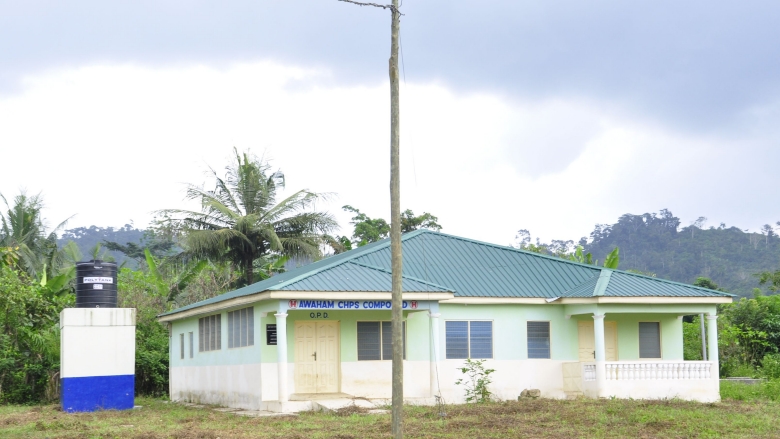Ghana’s urbanization rate was 51 percent in 2010, with a growth rate of 3.2 percent. Ghanaian cities faced many challenges in managing urbanization and could not meet the growing demands for infrastructure and services. Ghana’s decentralization and intergovernmental fiscal framework had not been fully responsive to the specific and significant needs of rapidly growing cities. These needs were not met through local governments’ own revenues or fiscal transfers from the central government which did not take into account the pressures faced by growing urban centers. Furthermore, local Public Financial Management (PFM) systems and the accountability of local governments to the central government and their citizens, which were critical to manage capital investments more efficiently and effectively, were weak.
Approach
To strengthen accountability and transparency of MMAs, the project took a two-pronged approach. At the national level, Social Accountability Unit was established and institutionalized in the Ministry of Local Government and Rural Development. At the local level, the innovation introduced was the involvement of leading NGOs in social accountability and the establishment and use of media network. The Project introduced the Social Public Expenditure and Financial Accountability (SPEFA) forum and promoted Town Hall Meeting (THM), supported by NGOs and the media network. These forums and meetings brought together citizen groups and increased their understanding of local government investment planning and financial management issues. 378 SPEFA meetings were held with 44,104 participants (41 percent female), and 199 THMs were held with 35,503 participants (41 percent female). At the end of the Project, 65 percent of attendees at planning meetings understood issues raised for discussion as evidenced by the Citizen Perception Survey (CPS) in 2017.
Results
- Improved and Strengthened the intergovernmental fiscal framework:
- outcome
- Improved timeliness of fiscal transfers from 17 percent in 2012 to 40 percent in 2017
- Reduction in the variance between budgeted amount and actual transfer from 65 percent in 2012 to 35 percent in 2017 – measure of budget credibility
- outcome
- Strengthened sub-national public financial management and accountability
- output
- 28,359 streets named, and 6,388 signage posts mounted
- 165,361 residential and business properties revaluated
- Five PFM guidelines developed (budgeting; reporting and auditing; asset management; revenue management; and social accountability)
- outcome
- Increased Internally Generated Funds by 148 percent from GHS75,826,397.80 in 2011 to GHS188,086,501.73 in 2017 - 16.9 percent average annual increase
- Institutionalized THM in all the 46 MMAs
- Clean audit of 46 MMAs in 2017 (39MMAs in 2012)
- output
- Improved citizens’ engagement and their perceptions of urban management
- output
- 378 SPEFA meetings with 44,104 participants (41 percent female)
- 199 THMs held with 35,503 participants (41 percent female)
- Media network established with 340 CSO members across 10 regions
- outcome
- Improved participation in municipal planning meetings from 5 percent in 2013 to 10 percent (2017 Citizen Perception Survey)
- output
- Improved infrastructure and services in urban assemblies
- output
- Education: 2,215 classrooms built, 34,690 pieces of school furniture and equipment provided
- Economic: 69 market stores/stalls, and 25 transport terminals/lorry parks constructed
- Connectivity: 120.3km road rehabilitated, and 119 drains/culvert/pedestrian foot bridge constructed
- Sanitation: 202 boreholes and 93 toilet facilities constructed
- output
